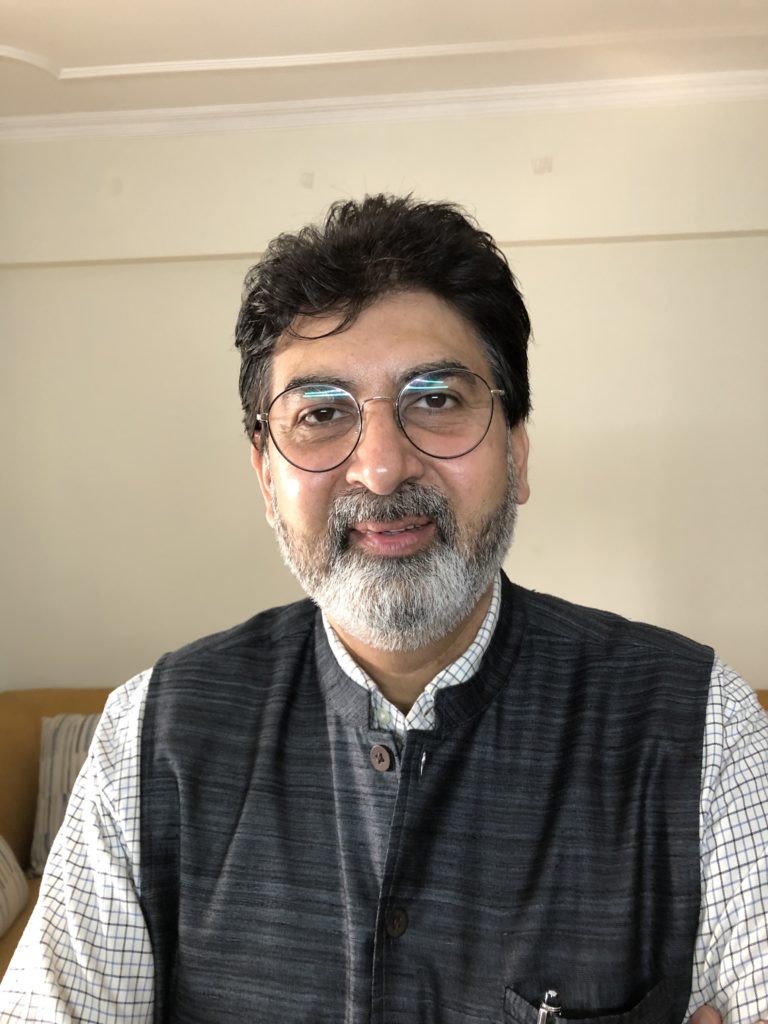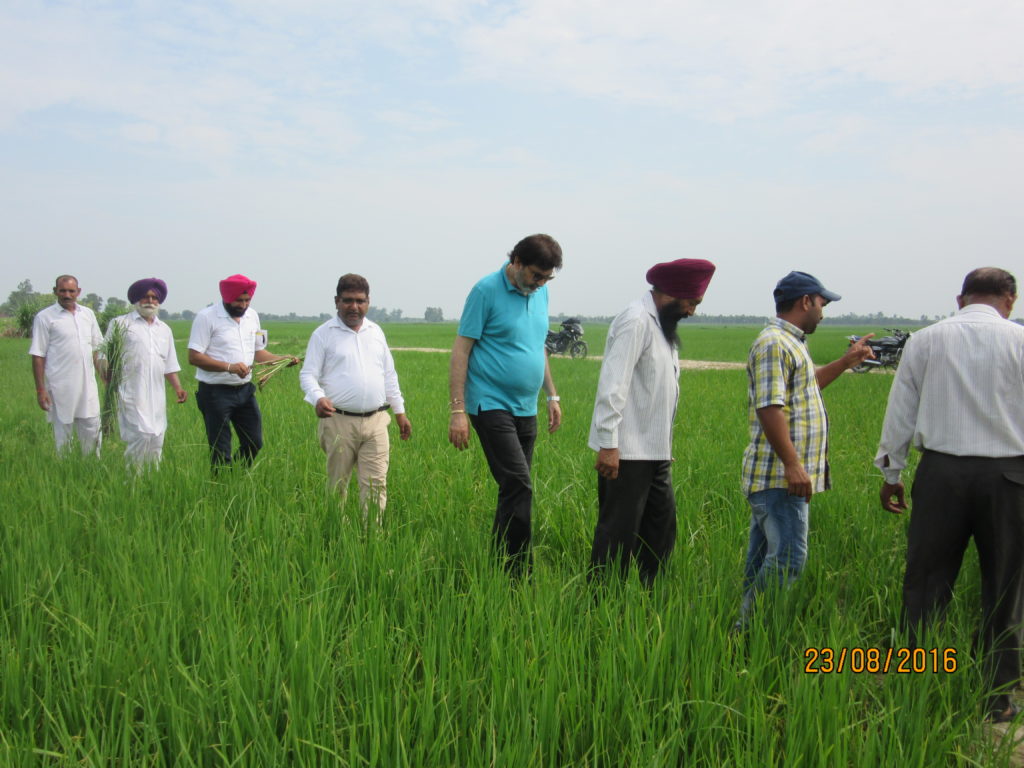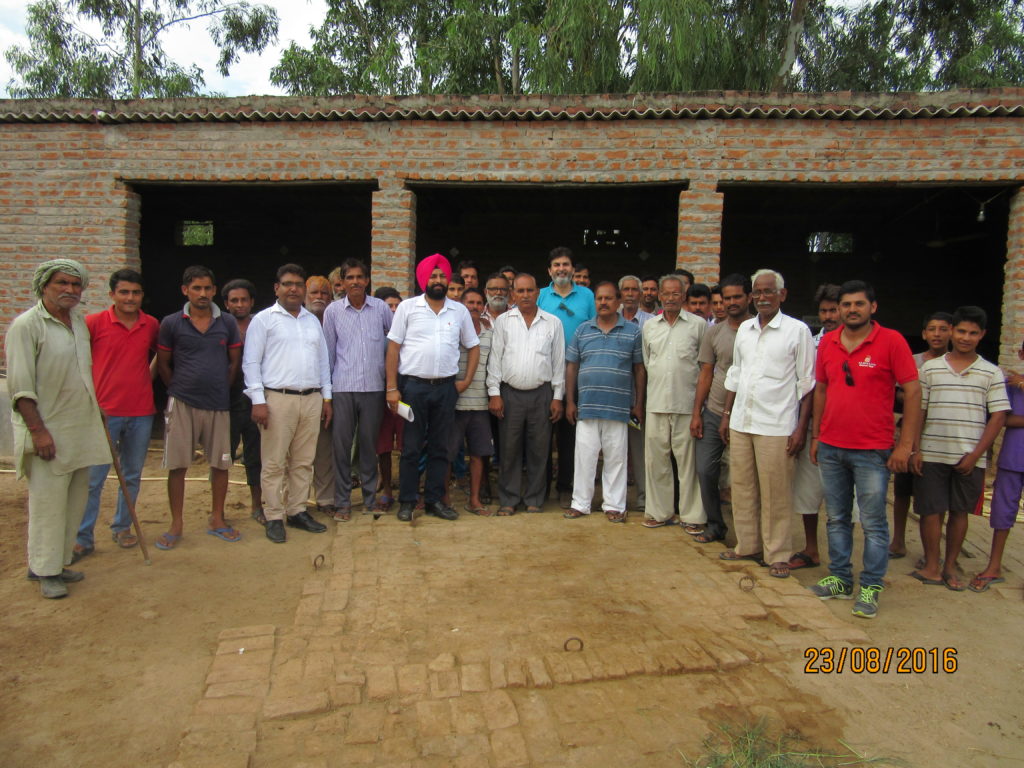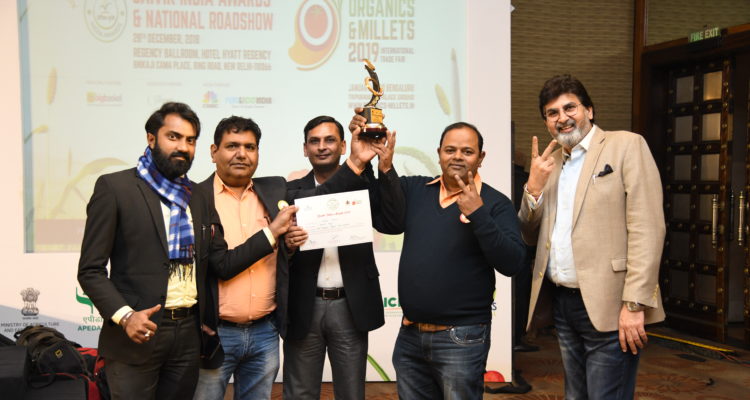The Indian organic industry may be considered nascent but AJAY KATYAL became part of it 20 years ago, when he piloted an organic division for a conventional rice exporter. Now, at the helm of his own organic venture—Nature Pearls—he takes Pure & Eco India through the truly nascent days and stresses the need of the hour in Indian organics today.
◊ By Rutaksha Rawat
Note: To access the contact details of all Indian organic ingredient suppliers and organic shops in India, buy Organic Directory

Ajay Katyal is a pioneer of the Indian organic movement since 1999. Specialising in international business development of agribusiness, with a focus on organic and specialty foods, he has worked on multiple organic food and farming projects, besides having piloted and presided over organic divisions in previously conventional-only food companies. One of the founding members of the Association of Indian Organic Industry (AIOI), Katyal currently serves as Director and CEO of his organic food venture, Nature Pearls Pvt Ltd, which is headquartered in Haryana, India. Nature Pearls was declared 2nd ‘Best Company – Organic Exports (Food)’ at the Jaivik India Awards 2018.
YOU’RE ONE OF THE FIRST FEW PEOPLE TO HAVE STARTED WORK IN ORGANIC AGRICULTURE IN INDIA. WHEN DID YOU FIRST START WORKING IN THIS ARENA?
Ajay Katyal: I learned about organic farming and foods in 1999, when I came in contact with a few organic farmers who were cultivating organic basmati rice and organic wheat. I was working with a leading Basmati rice exporter, which was a conventional-only company at the time. We piloted an organic division through which we exported organic basmati rice—and we were the very first company in India to do this. It has been 20 years working in organic farming and foods and the journey has been wonderful and inspiring!
Through the years, I have met many beautiful human beings who were part of the global organic farming movement. Many of them were extremely innovative and some were pioneer organic farmers. Some of the friends I made were socially and environmentally enlightened entrepreneurs and policy makers. All of us collectively contributed to the organic scenario of today.
WAS THE ATMOSPHERE CONDUCIVE FOR ORGANIC BUSINESS IN INDIA BACK THEN?
Ajay Katyal: Well, it was partly conducive because we were highly passionate about the cause. Everyone who was part of the organic movement was close to each other, almost like extended family. We all had one common goal—to achieve success in the global organic movement and place India on the global map as one of the leading producers of organic food. There was also a very close and trusting relationship among overseas buyers, exporters and organic farmers.
Despite our enthusiasm, however, we had to struggle to find suitable groups of organic farmers to join us, as few were involved in organic farming at the time.
Furthermore, knowledge about organic farming practices was not available in a systematic and cohesive manner as it is today. Unlike today, there was no encouragement from agricultural universities or institutes, who instead regarded us and organic farmers as a crazy group of people who were wasting their time and resources on non-scientific agricultural practices, which were not viable or sustainable. But we never gave up owing to our strong desire to succeed.

Katyal with Nature Pearls Pvt Ltd’s organic farmer partners in Punjab

YOU FOUNDED NATURE PEARLS, WHICH IS EXPORT-LED, IN 2014. HOW HAS THE RESPONSE BEEN AND WILL YOU RETAIL IN THE DOMESTIC MARKET ALSO?
Ajay Katyal: After spending a considerable amount of time in this futuristic and potential business category, I decided to start my own venture. This product category is mostly meant for the export market. We started with exports in bulk, as well as, under our own brand, Nature Pearls. Currently, we’re working on 18,000 ha of organic certified land with approximately 11,000 organic farmers. Our projects are scattered across the whole of India except the eastern region.
We export a wide variety of certified organic foods—Basmati and specialty rice; pulses and lentils; spices, super grains, and ready-to-eat gourmet meals. Presently, we’re exporting to 10-12 countries across the developed world. The response has been great. At the Jaivik India Awards 2018, we were recognised as the 2nd ‘Best Company – Organic Exports’ in the food category.
The Indian market is also important for us and we have plans to launch our products in the domestic market sometime in the near future.
WHICH ORGANIC CERTIFICATIONS DOES NATURE PEARLS POSSESS?
Ajay Katyal: Nature Pearls is certified organic as per NPOP (National Programme for Organic Production), NOP (National Organic Program)/USDA, EOS (Ecocert Organic Standard) and Bio Suisse standards. We also have Kosher, Sustainable Rice Platform and Fairtrade certifications.
SHARE WITH US YOUR 5-YEAR ROADMAP.
Ajay Katyal: Currently, we are growing at a CAGR of 30-35%. Our target for the next 5 years is to grow in the same manner, both in terms of turnover, as well as, new products. We shall also expand our farming and supply operations in many new producing countries in order to add on more global products to our range of offerings. In order to capture new markets in consuming countries, we will set up marketing offices overseas.
WHAT, ACCORDING TO YOU, IS THE NEED OF THE HOUR FOR THE INDIAN ORGANIC INDUSTRY?
Ajay Katyal: It is time for India to take the next leap now. We have to improve our product quality in terms of marketability, as well as, organic integrity. We need to add more value-added products, which can compete in and are applicable in global markets.
The Indian organic industry definitely needs financial support from the government so that small companies can become globally competitive and sustainable. We need market development funds—like the ‘Basmati Development Fund’, which was set up under the Ministry of Commerce and Industry in 1995—which can be expended in due consultation with the industry. Government support for Organics must be comparable to the subsidy given to chemical companies for promotion of agrochemicals.
Given our dynamic agricultural layout and diverse climates, India is most suitable for organic farming production across a vast variety of crops. What is needed is some serious capital infusion from large food companies/high net worth investors/venture capital funds in order to exploit the country’s full agri potential.
Visit Nature Pearls’ website: www.naturepearlsorganic.com



He has been one of the soldiers of IOF(Indian Organic Food). The first company to have started Organic Food Business in 1998. I wish all the part old team & expect them to lead in bringing ETHICS to Organic Business. Iwonder how long we can misuse/exploit the trust of our dedicated customers. There is a lot needed to be done in the field of Organic, ETHICS being the mainstream requirement.